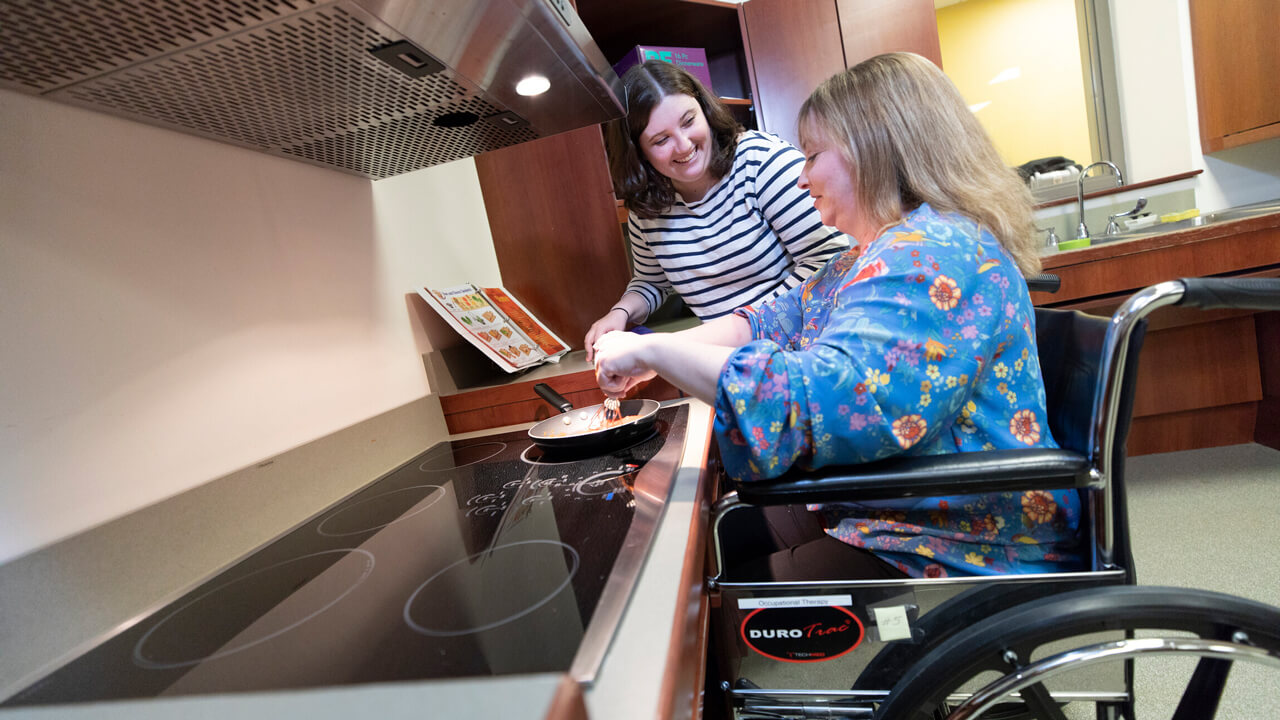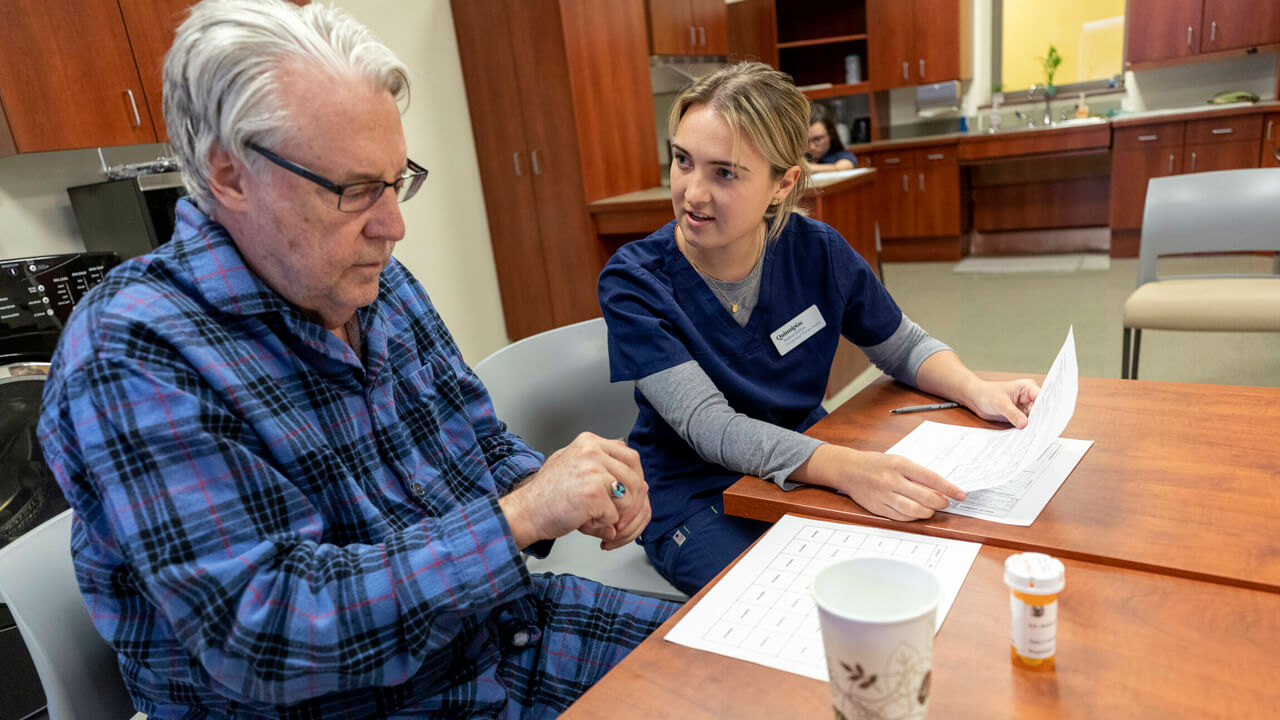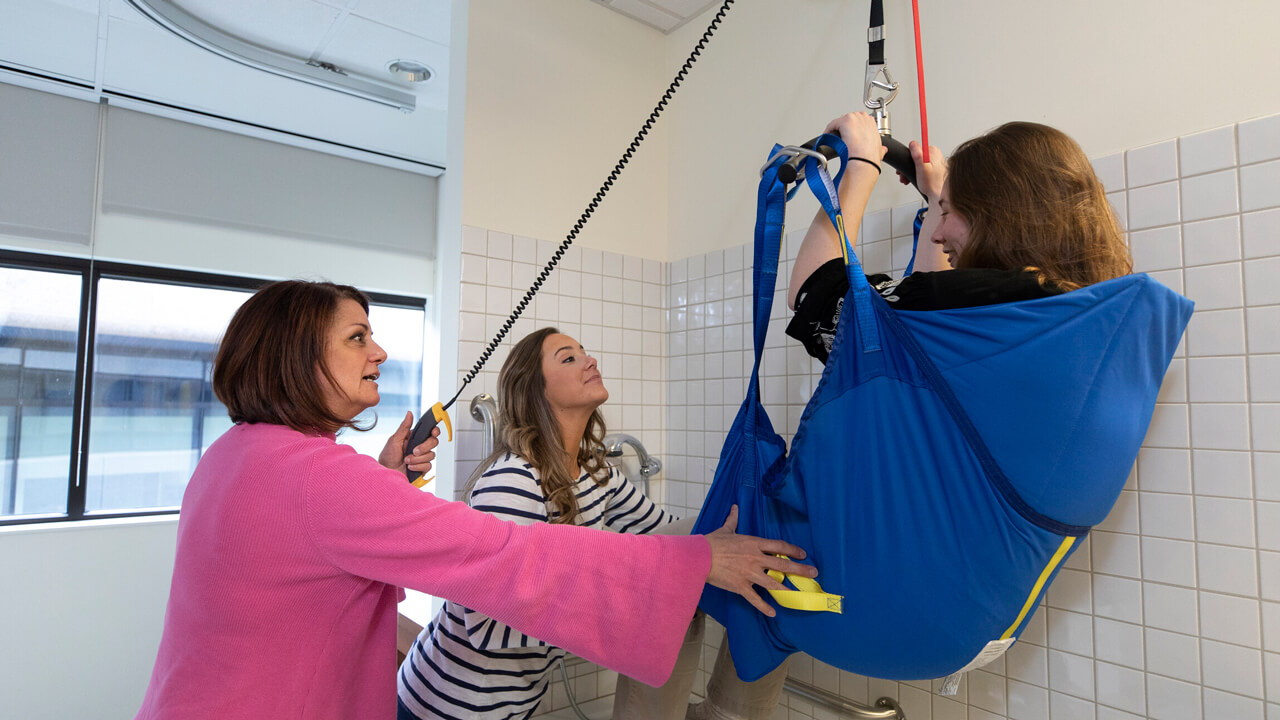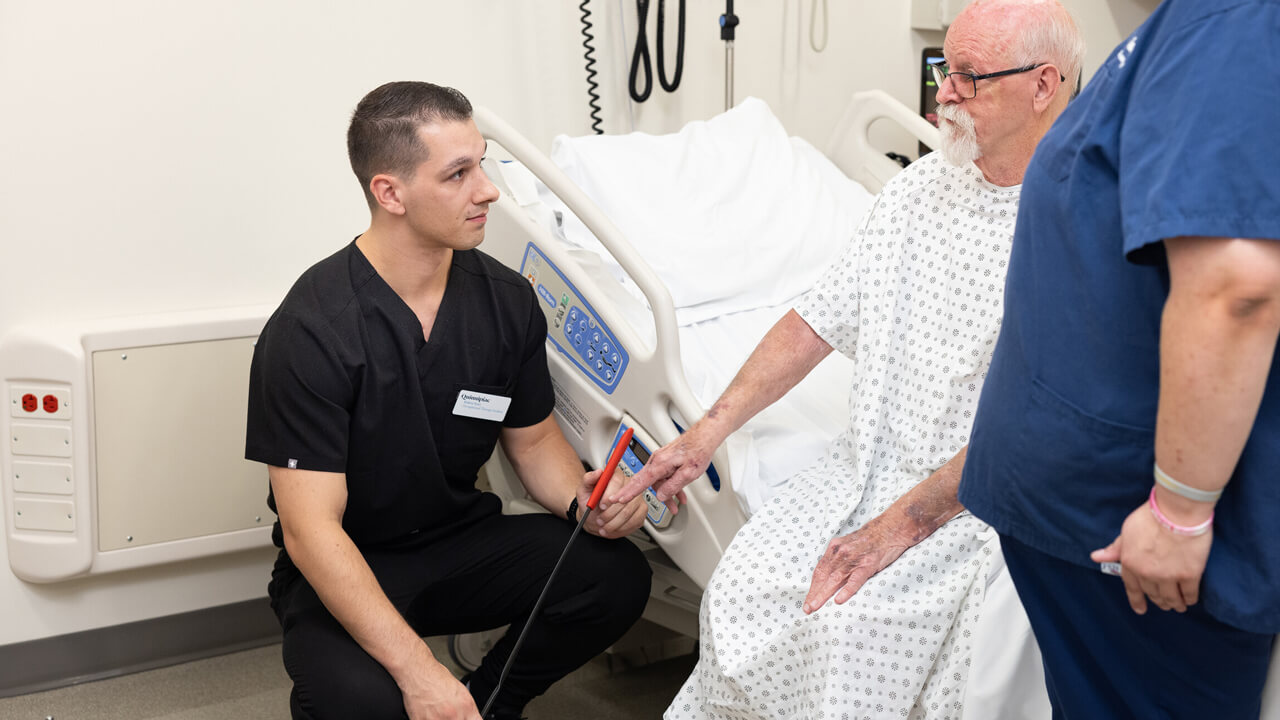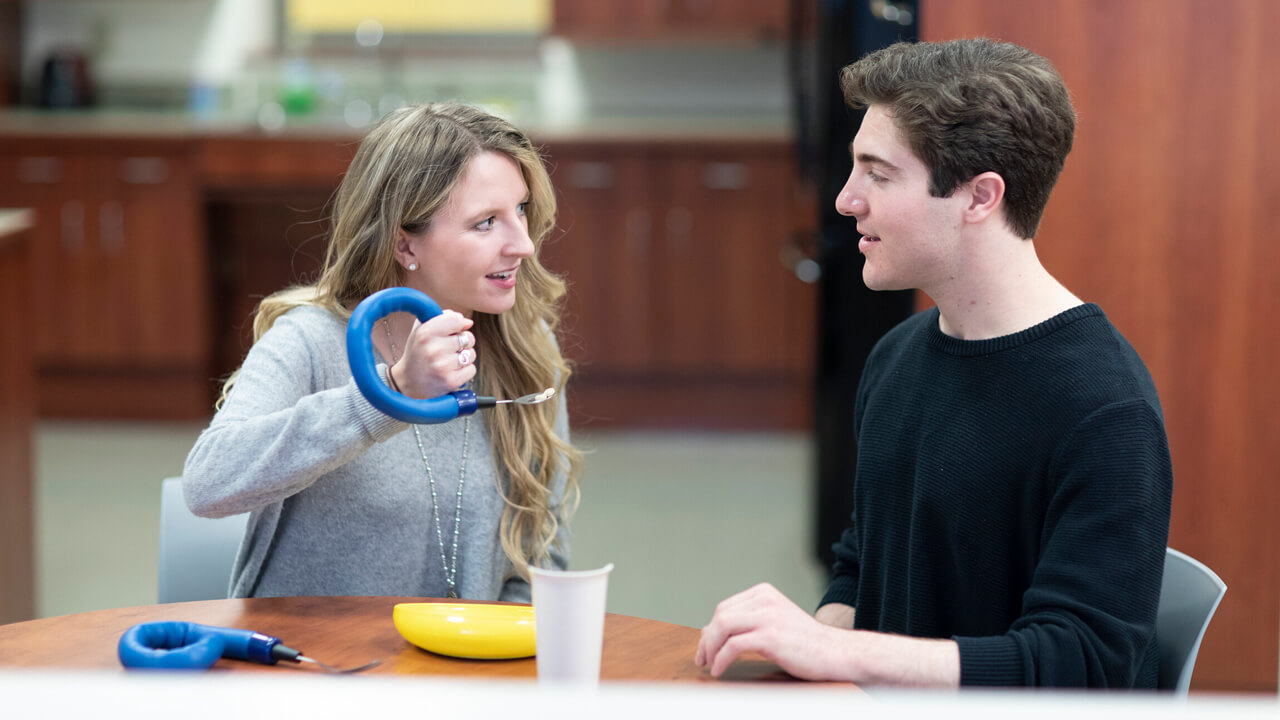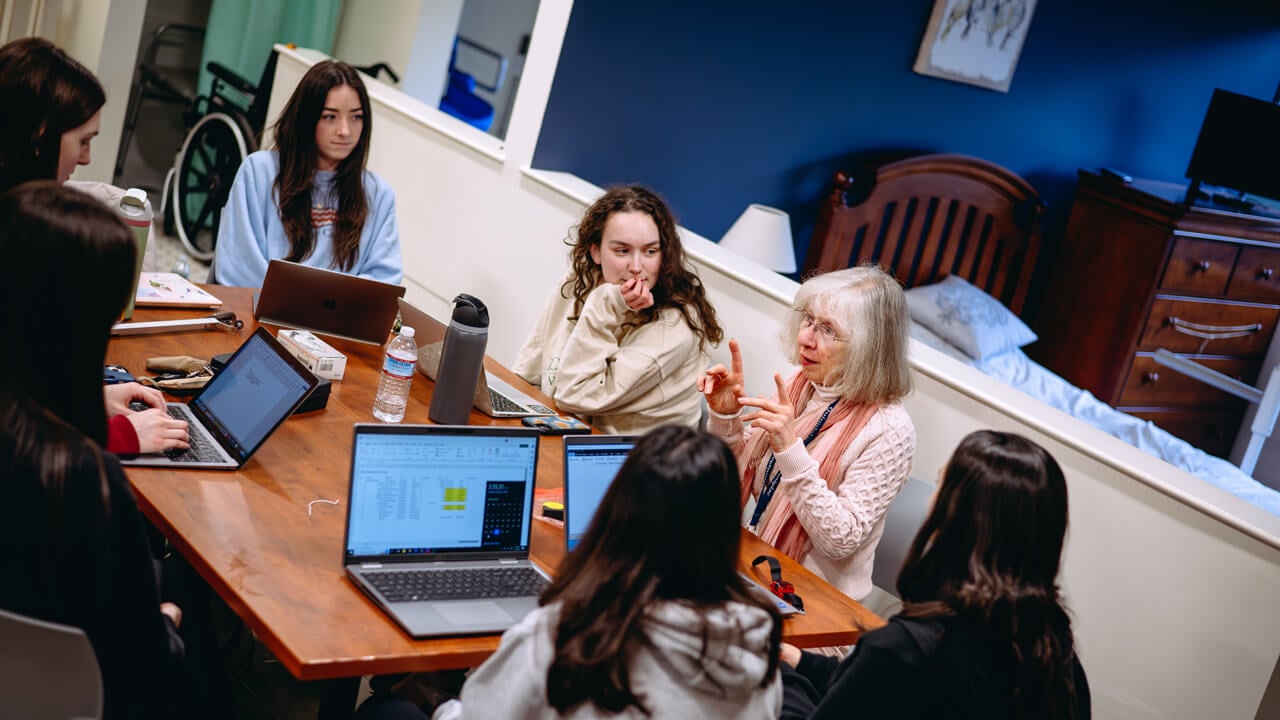Students in the occupational therapy program engage in simulation-based learning within their adult and pediatric evaluation and intervention courses. They are introduced to various clinical environments in the simulation laboratory, including an intensive care hospital setting and a neonatal isolette with premature infants, as well as low-tech infant models and high-fidelity adult manikins. These simulations allow students to practice hands-on therapeutic techniques such as manipulation, positioning, handling, bed mobility and pressure relief strategies. Additionally, they develop communication skills for discharge planning and an understanding of family systems and grief support.
Another experiential learning opportunity includes practicing clinical skills with standardized patients. Through these interactions, students gain firsthand experience with an array of diagnoses while practicing assessment and intervention techniques in a variety of mock clinical scenarios. These simulation opportunities enhance teamwork, communication, clinical competence and confidence, helping students feel well-prepared before beginning their fieldwork placements with real patients.

